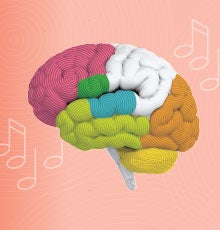- Nov 25, 2022
- 83
- 142
- Country
- United States
- Gender
- Female
- Faith
- Eastern Orthodox
- Marital Status
- Single
- Politics
- US-Libertarian
So I'm learning acoustic guitar and I'm struggling with music theory buuuuut I'm sort of understanding chord progressions within the major scales. I am super proud of myself right now, hehe.
I like folk songs; I had a tab of a song that was too high (I'm a woman who sings tenor in choir). I found a key that was lower but one of the equivalent notes sounded off when I knew it shouldn't. So I stripped the tab down to the chord numbers rather than specific chords of a scale and wow! I could play it in any key as long as I knew the progression! Funny then, I found out I had made a mistake while originally transposing the key from D to C and playing it correctly, suddenly the C scale notes sounded right.
I'm amazed that, say, the G chord can sound totally different in different scales. Like we're using such a small set of chords but they have different character depending on the context. I wish music theory wasn't just Greek to me but if I can learn it practically then I never forget.
I like folk songs; I had a tab of a song that was too high (I'm a woman who sings tenor in choir). I found a key that was lower but one of the equivalent notes sounded off when I knew it shouldn't. So I stripped the tab down to the chord numbers rather than specific chords of a scale and wow! I could play it in any key as long as I knew the progression! Funny then, I found out I had made a mistake while originally transposing the key from D to C and playing it correctly, suddenly the C scale notes sounded right.
I'm amazed that, say, the G chord can sound totally different in different scales. Like we're using such a small set of chords but they have different character depending on the context. I wish music theory wasn't just Greek to me but if I can learn it practically then I never forget.


